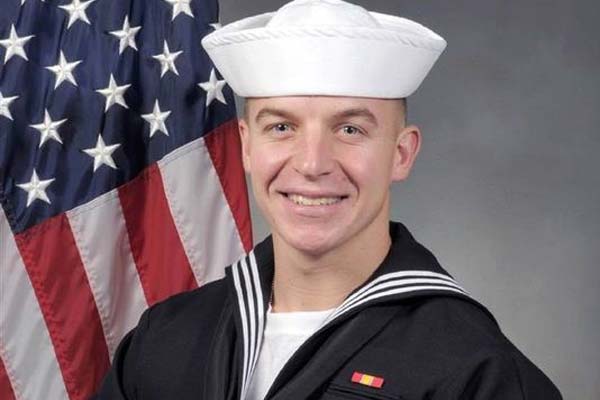Seaman James Dereck Lovelace. Photo: U.S. Navy
 By Sharon Bernstein
By Sharon Bernstein
July 6 (Reuters) – The drowning death of a U.S. sailor during Navy SEAL training in California has been ruled a homicide by the San Diego medical examiner’s office which noted in a report that, against Navy rules, an instructor dunked the sailor under water even as he struggled.
James Derek Lovelace, 21, who was based in San Diego, died on May 6 after taking part in a training exercise that involved swimming and treading water while wearing fatigues and combat boots, the medical examiner’s office noted in its report.
“Although the manner of death could be considered by some as an accident, especially given that the decedent was in a rigorous training program that was meant to simulate an ‘adverse’ environment, it is our opinion that the actions, and inactions, of the instructors and other individuals involved were excessive and directly contributed to the death,” Pathology Fellow Dr. Kimi Verilhac wrote in the report.
The U.S. Navy did not immediately respond to a request for comment on the homicide ruling.
The training exercise at a Navy Seal training compound in Coronado, near San Diego, was captured on surveillance video.
Lovelace was known to the Navy as suffering at times from training-induced asthma and a heart irregularity, Verilhac wrote.
Naval Criminal Investigative Service spokesman Ed Buice said in a statement to Navy Times that the coroner’s report does not mean that instructors engaged in criminal activity during the exercise.
“It is important to understand that ‘homicide’ refers to ‘death at the hands of another’ and a homicide is not inherently a crime,” Buice said, adding that NCIS was continuing to investigate Lovelace’s death.
“The NCIS investigation is open and active and NCIS does not discuss the details of ongoing investigations,” Buice said.
Verilhac wrote in the report that Lovelace had an enlarged heart which could contribute to sudden death among athletes. However, she wrote, because the trainee was dunked while struggling in the water and allowed to go under several times, the death was attributable to drowning and was a homicide.
There have been several deaths in recent years among service members undergoing grueling training for the elite corps. Last year, two Navy Seals died after training mishaps in a swimming pool at a Virginia military base, and Seals died in training accidents in Phoenix and Tennessee in 2013. (Reporting by Sharon Bernstein; editing by Toni Reinhold)
(c) Copyright Thomson Reuters 2016.

 Join The Club
Join The Club











